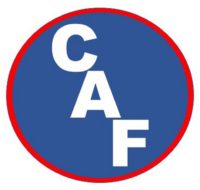Fire personnel should understand and be familiar with the UL Certification and Labeling process to assist in concentrate purchasing decisions.
UL (formerly Underwriters Laboritories) is a global standards company that develops safety standards for a variety of consumer goods, especially those with electrical parts. UL operates a number of 3rd party laboratories for testing.
Manufacturers pay UL or other 3rd party labs to tes their products against industry standards. Having proof that their product meets these industry standards lend credence to the quality of a product.
In firefighting, the concentrate industry standards are:
- NFPA 18A – Standard on Water Additives for Fire Control and Vapor Mitigation
- NFPA 11 – Standard for Low, Medium & High Expansion Foam.
- NFPA 1150 – Standard on Foam Chemicals for Fires in Class A Fuels
Fire personnel must be familiar with both the industry standard, and the testing process, as products may be tested against only a part of the standard. Manufacturers will choose what standard, or part of a standard their producted will be tested against. A product with a UL label or certificate is certified only against the standard or part of the standard that was used in the test. For example, a product being sold as a Class A Foam may have only been tested against NFPA 18a as a “wetting agent”. Testing also might include whether the product can be used against Polar or Non-polar fuels.
UL CERTIFICATION:
- UL Listed – The final product has been tested and meets the industry standard.
- UL Recognized – only a component of the product (not the whole product) has been tested to meet the industry standard.

UL LABELED:
UL authorizes their label to be affixed to a product (and or packaging) only if the testing and certification process includes “UL Follow-Up Services”. Follow Up services includes periodic and on-going UL site inspections of the manufacturer’s facilities and manufacturing process to insure that the “Certified” product remains the same as that originally tested. The manufacturer pays for this service. Therefore, the UL Label insures that the product has not changed since the original certification.
If your concentrate product includes the UL mark on the label, you now know the route to which it traveled to get that label and that the product hasn’t changed, and still meets the inductry standard for which it was originally tested.





































